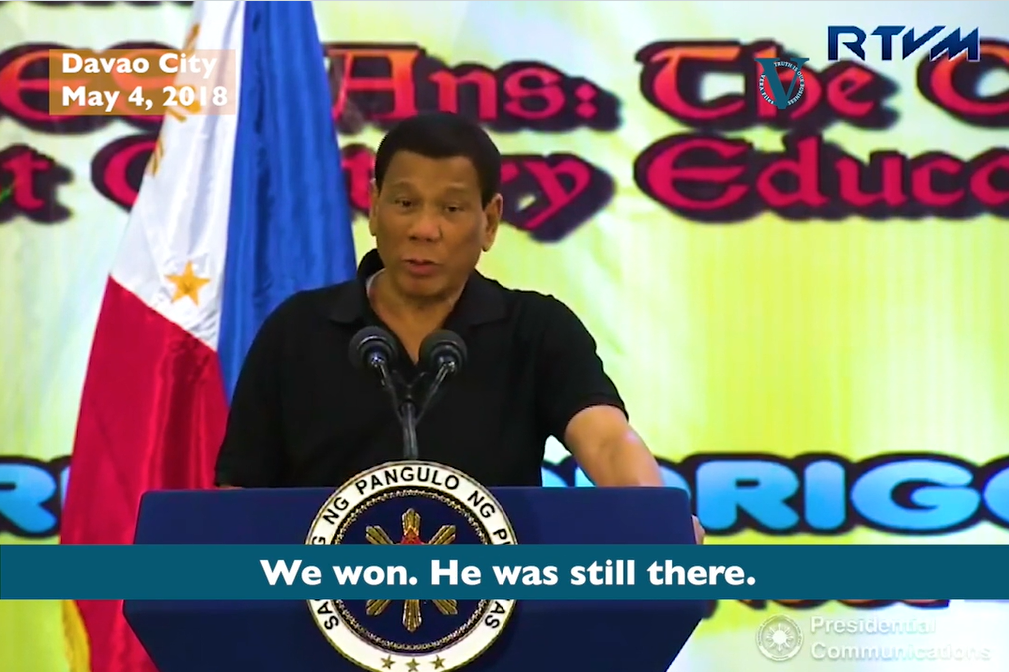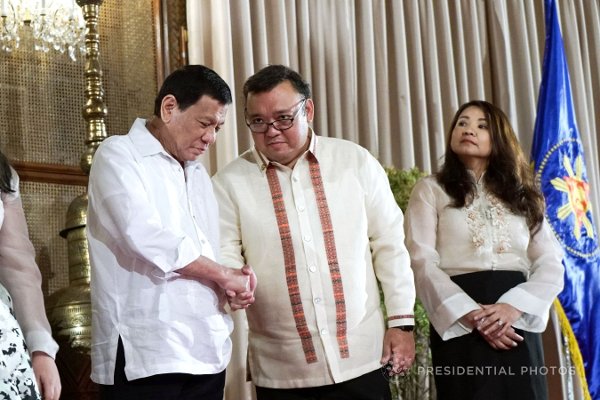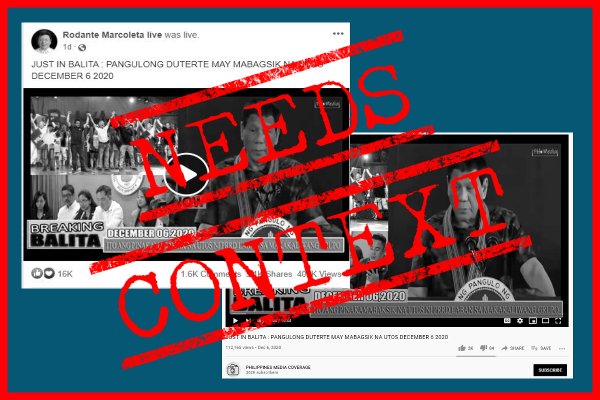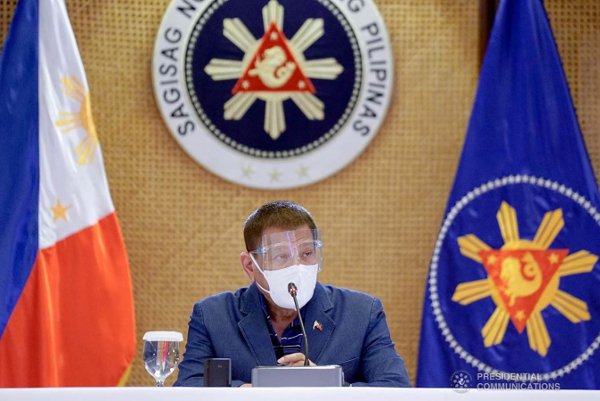By NICOLE-ANNE LAGRIMAS and ARIANNE CHRISTIAN TAPAO
ON the eve of President Rodrigo Duterte’s inauguration, in related events that began in Quezon City and ended at the Liwasang Bonifacio in Manila, several hundreds from South Luzon laid down a “People’s Agenda for Change,” a set of 15 action items which they hope the new president would make his priority for the next six years.
One of them was Angelina Malayas, a 58-year old farmer from Mindoro. She, along with other farmers, workers and women’s groups did not mind a drizzle of rain as they tried to make themselves heard by the new administration.
“Ang inaasahan ko ay matutulungan niya ang mga mahihirap, alisin ang droga,’yung nasa TV lagi. Ang lupa, bibigyan ang mahihirap (I hope he can help the poor, give them land, and eradicate drugs – what you always see on TV),” said Malayas.

Duterte, who ran and won on a platform of bringing about real change in the country by suppressing criminality and corruption, reiterated his campaign promises in his inaugural speech Thursday.
“‘Malasakit. Tunay na Pagbabago. Tinud-anay nga Kausaban (Compassion. Real change):’ these are words which catapulted me to the presidency. These slogans were conceptualized not for the sole purpose of securing the votes of the electorate. Tinud-anay nga kabag-uhan. Mao kana ang tumong sa atong pang-gobyerno (Real change. This is the direction of our government),” Duterte said.
While the issue of illegal drugs figured prominently in his 15-minute speech, the new president also discussed among others peace, saying his administration “is committed to implement all signed peace agreements in step with constitutional and legal reforms.”
The peace agenda figures prominently in the “People’s Agenda for Change,” notably urging Duterte to fulfil his campaign promise of talking peace with the Communist Party of the Philippines-New People’s Army-National Democratic Front of the Philippines (CPP-NPA-NDF).
Negotiations with the CPP-NPA-NDF stalled during the outgoing Benigno Aquino III administration, but preliminary talks had recently been held between Duterte’s peace adviser Jesus Dureza, labor secretary Silvestre Bello, who will also serve as “consultant” to negotiations with CPP-NPA, and CPP founder Joma Sison in Oslo, Norway.
Duterte had earlier offered four Cabinet positions to the Left: DSWD, DAR, Department of Environment and Natural Resources and Department of Labor and Employment.
“Pambihira ang pagkakataong ito na ang isang halal na pangulo ay nag-extend ng kanyang kamay sa kaliwa (It is rare for a president-elect to extend hands to the Left),” said incoming DSWD secretary Judy Taguiwalo.

She and incoming DAR secretary Rafael Mariano were present in the summit to formally receive the “People’s Agenda,” both promising to uphold them.
Alongside talking peace with the CPP-NPA-NDF, the “People’s Agenda” also urged Duterte to continue peace process with the Moro Islamic Liberation Front (MILF).
The government of the Philippines started informal peace talks with the MILF in 2011. The peace negotiations ended in March 2014 with the signing of the Comprehensive Agreement on the Bangsamoro (CAB), which provided for the adoption of the Bangsamoro Basic Law, considered a “crucial” step in the peace process in Mindanao.
However, the 16th Congress, under the Aquino administration, failed to pass the BBL.
On the international front, meanwhile, the agenda called on Duterte to seek a peaceful resolution instead of war in upholding national sovereignty in the West Philippine Sea dispute against China.
“We are pushing for government to pursue bilateral and multilateral talks,” former Gabriela Rep. Liza Maza told VERA Files during the National People’s Summit.
Maza added that military defense funds should be reallocated to to social services, saying a better military defense system is only possible if the economy becomes stable.
“Kailangan paunlarin natin ang self-reliant defense system at mangyayari lang ‘yan kung ang ating ekonomiya ay maaayos (We need to develop a self-reliant defense system, but that will only happen if the economy surges),” Maza said.
Aside from peaceful resolutions to armed conflict, the group also demanded economic sovereignty, national industrialization, agrarian reform and wage hike. Also included in the agenda is the widening of social services and improvement of public utilities, ending graft and corruption and decreasing the budget of the military and fund reallocation to economic growth and social services.
Gender equality and respect for the rights of minorities also took space in the 15-point agenda.
Minorities include indigenous peoples (IPs), 12 communities of which, in Mindoro, face threats of displacement due to large-scale mining activities by a foreign firm, whose waste materials are ruining their rivers and mountains, said Rev. Ian Loid Delos Santos of Kaisahan ng mga Mindoreño Laban sa Dayuhan at Dambuhalang Pagmimina (KALASMINA).

Delos Santos’ anticipation of the incoming administration seems positive as well however, as he claimed the new secretary for the environment and natural resources Gina Lopez supports KALASMINA and its advocacy.
Yet foremost for Malayas is “genuine” change in agrarian reform, and the related problem of land grabbing, a pressing problem from where she hails.
“Kapiranggot na nga ang lupang tinitirhan, aagawin pa ng mga mayayaman. Sa tingin ko po hindi naman tama yan (It is not right that our lands are so small, and yet the rich still steal them),” she said, urging the president to solve her land woes.
(The authors are University of the Philippines students writing for VERA Files as part of their internship.)





